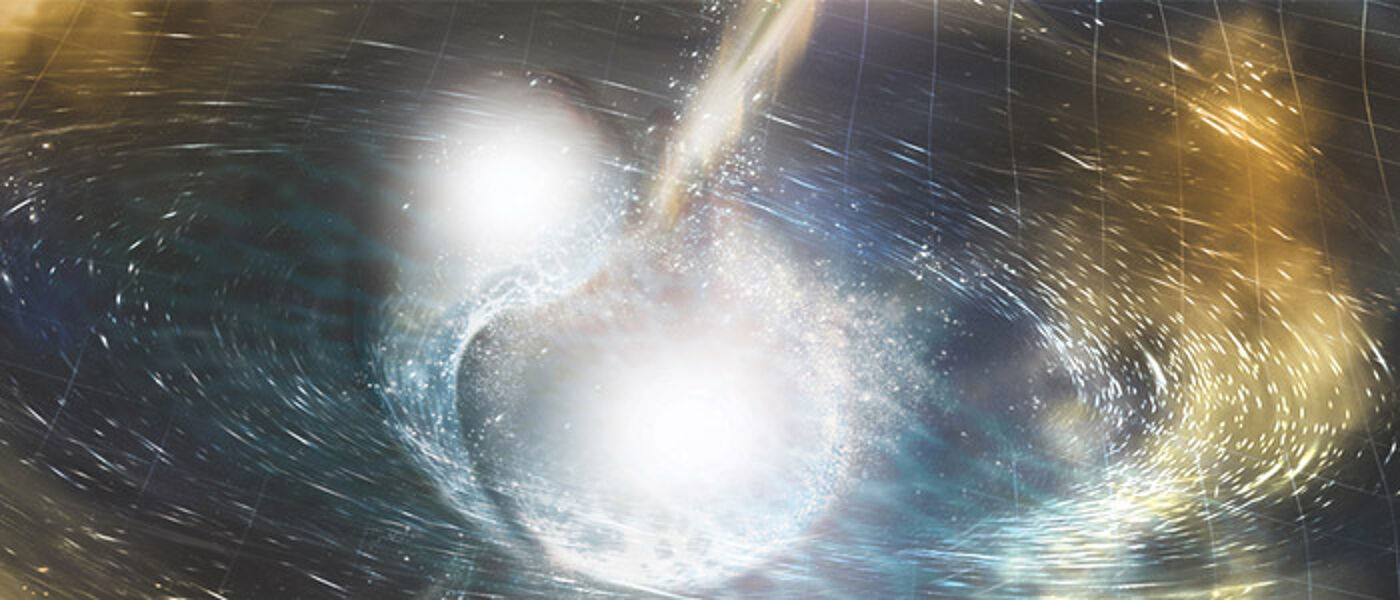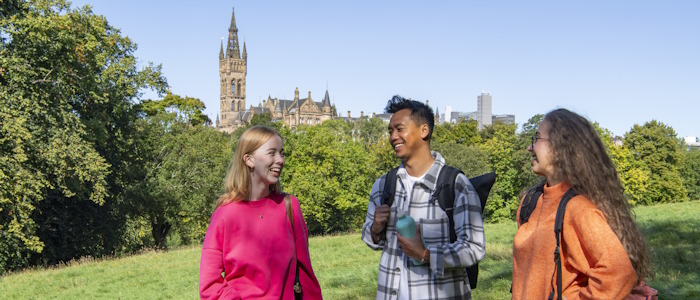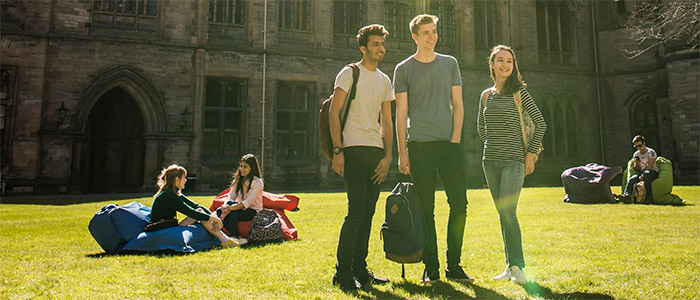Astronomy BSc/MSci

Astronomy is the study of the physical universe, from the Earth and the solar system to galaxies at the edge of the cosmos.
Astronomy lectures are complemented by our observatory, planetarium and telescope facilities. You will learn about the latest developments in astrophysics from research leaders.
- September start
- Session dates
- This programme can only be taken as joint honours
- Glasgow: Gilmorehill campus
- Degree options
- Professionally accredited
- Study abroad available
Why study Astronomy?
Programme structure
Year 1
You will survey the observable universe on all scales, from planets through stars and galaxies to cosmology, and gain a basic understanding of the core theoretical and observational principles of modern astronomy.
Year 2
You will study key aspects of astronomy and astrophysics in greater depth and undergo further training in the use of optical and radio telescopes.
You will study Mathematics in years 1 and 2 and for joint degrees with Physics, you will also study Physics in years 1 and 2.
Years 3, 4 and 5
If you progress to Honours (years 3 and 4) Astronomy can only be taken as a Joint Honours degree with either physics or mathematics.
In Honours your studies will include modern observational methods and you will undertake project work using advanced astronomical instrumentation and data analysis techniques.
Your core courses will be supplemented by options enabling you to follow your particular areas of interest.
All courses include training in transferable skills such as teamwork, presentation and technical writing.
In the final year, all students work on an independent research project embedded in one of our active research groups.
There is an opportunity to take an MSci degree, which explores astronomy topics in greater depth and includes an individually supervised project working at the cutting edge of international research.
Course details
Programme alteration or discontinuation
The University of Glasgow endeavours to run all programmes as advertised. In exceptional
circumstances, however, the University may withdraw or alter a programme. For more information,
please see: Student contract.
Our international links
Our staff have strong international links across a wide range of research fields. Many of our staff play leading roles in major international research projects, such as NASA's Solar Orbiter mission and the worldwide collaboration searching for gravitational waves. You will have the opportunity to undertake part of your degree abroad.
Entry requirements
for entry in 2025
You should refer to the entry requirements for both subjects and the degree award when applying for a joint honours degree programme. The higher entry requirement (where applicable) and additional requirements must be met for both subjects.
Summary of entry requirements for Astronomy
SQA Higher entry requirements
- BBBB is the minimum requirement from S5 to be reviewed for an S6 offer
- Offers are not guaranteed to applicants who meet the minimum from S5
- Typically offers will be made at AAAAA by end of S6. B at Advanced Higher is equivalent to A at Higher
- Additional requirements: Higher Mathematics and Physics at AA. (AB may be considered).
SQA Higher adjusted entry requirements* (by end of S5 or S6)
- MD20: BBBB (also other target groups*)
- MD40: AABB*
- Additional requirements: Higher Mathematics and Physics. Successful completion of Top-Up or one of our Summer Schools.
* See Access Glasgow for eligibility.
A-level standard entry requirements
- AAB – BBB
- Additional requirements: A-level Mathematics and Physics.
IB standard entry requirements
- 34 (6,5,5)
- Additional requirements: HL Mathematics (Analysis & Approaches) and Physics.
Admissions guidance
English language
For applicants from non-English speaking countries, as defined by the UK Government, the University sets a minimum English Language proficiency level.
English language requirements
Career prospects
The scientific knowledge and mathematical and analytical skills you acquire will equip you to work across a wide range of industries. Many of our graduates choose to continue their studies for a higher degree such as an MSc or a PhD in a specialised area of astronomy, or a related subject, before entering the job market.
Our recent graduates are employed as It Business Analysts, Architects And Systems Designers, Programmers And Software Development Professionals.
Explore our LinkedIn profile for a flavour of where our most recent graduates work.
Accreditation
- Joint Astronomy/Physics BSc and MSci degree programmes are accredited by the Institute of Physics
- Joint Astronomy/Mathematics BSc and MSci degree programmes are recognised by the Institute of Physics.
Degrees and UCAS codes
Astronomy can only be taken as a Joint Honours degree.
When applying you will need to know the UCAS code for the subject or subject-combination that you wish to apply to:
BSc (Hons)
MSci
Fees and funding
Tuition fees
How and when you pay tuition fees depends on where you’re from: see Tuition fees for details.
Scholarships
The University is committed to supporting students and rewarding academic excellence. That's why we've invested more than £1m in additional scholarship funding in recent years.
World Changers Global Excellence Scholarship
World Changers Glasgow Scholarship UG (EU)
World Changers RUK Excellence Scholarship
World Changers RUK Access Bursary
James McCune Smith Undergraduate Scholarship
Care Experienced and Estranged Student Bursary
Beaconhouse Schools
Undergraduate Talent Scholarships
Cowrie Foundation Scholarship
The Clan Gregor Society Prize
The Dima Alhaj Scholarship
Sanctuary Scholarships
Travel Bursary for Forced Migrants
Glasgow Highland Society Scholarship
The scholarships above are relevant to this programme. For more funding opportunities search the scholarships database
How to apply
Full-time students must apply through the Universities & Colleges Admissions Service (UCAS).
SQA applicants who are eligible for our Widening Participation programmes are encouraged to participate in one or more of these programmes, including Summer School, to support your application and the transition to higher education.
International students to Arts, Engineering, Law, Nursing, Science, and Social Sciences can also apply using The Common Application: however, if applying to more than one UK university, we recommend using UCAS. Applications to Dentistry, Education, Medicine, and Veterinary Medicine must be made through UCAS.
Application deadlines
- 15 October: if including Dentistry, Medicine, Veterinary Medicine or also applying to Oxford or Cambridge
- 29 January: all other UK applicants (unless otherwise stated on the UCAS website)
- 30 June: international students.
We do not usually accept any applications after these deadlines.
It's your responsibility to ensure the accuracy of your application before submission. Requests to correct application content, change degree programme or change college of entry, will not be accepted after these deadlines. This policy is in place to ensure fairness and consistency to all applicants, and no exceptions will be made.
- Apply at www.ucas.com or through your school or college
- Contact UCAS on 0871 468 0468
- Apply at commonapp.org (international students to certain areas only)
ATAS: Academic Technology Approval Scheme
Subject league tables

Times & Sunday Times Good University Guide [Physics & Astronomy]





